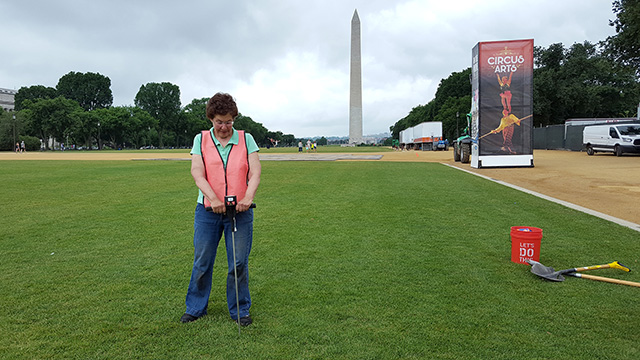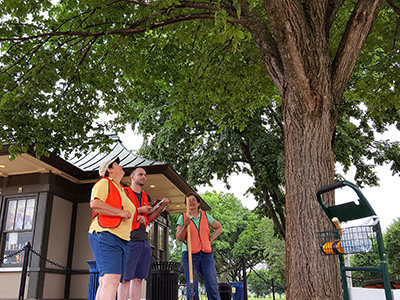
A team of Cornell experts is helping the National Park Service aid ailing elms ringing the National Mall in Washington, D.C.
“There are hundreds of trees in this iconic landscape that really need help,” says Nina Bassuk, director of Cornell’s Urban Horticulture Institute (UHI), who is leading the team.
“When it’s hot, people gather in the shade under these trees, making soil compaction from all the foot traffic a huge problem,” adds Bassuk, who is also a professor in the Horticulture Section of the School of Integrative Plant Science. Dutch elm disease and other maladies also plague many of the trees.
The Park Service asked Bassuk to put her expertise helping trees cope with tough urban environments to work helping them develop a master plan for managing the trees. She traveled to Washington in mid-June to begin gathering more information along with horticulture graduate student Yoshiki Harada, UHI visiting fellow Bryan Denig, and Barb Neal, a community educator with Cornell Cooperative Extension in Tioga County who has extensive professional landscaping experience in the Washington metro area.

Harada and Bassuk collected more than 100 soil samples, half sent to the Cornell Soil Health Lab for analysis and half used to measure the soil’s bulk density, an indicator of compaction.
Meantime, Neal and Denig – both certified arborists – conducted a tree inventory and risk assessment to determine the health status of the individual trees and to let the Park Service know which should be removed and which will require frequent monitoring so as not to pose a hazard.
Once the soil analyses are completed and Bassuk has digested the data, she’ll report her findings back to the Park Service. “We’ll focus on what steps can be taken going forward to help these trees thrive,” she says.


